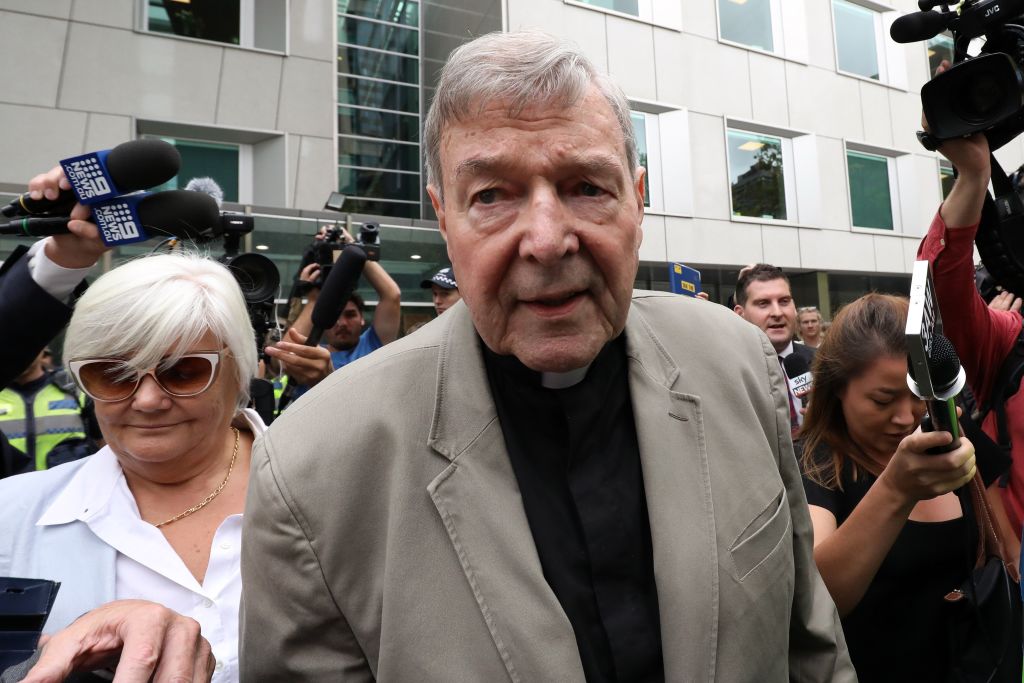The acquittal of Cardinal Pell by the Australian High Court on all the charges against him was remarkable in all sorts of ways: all seven judges agreed in near record time to the joint judgment throwing out the five charges against him and they did it after digging right into the evidence. They simply annulled the earlier verdicts by a jury and Victoria’s appellate court – though their findings resoundingly vindicate the detailed, 204-page dissident judgment by one of the three judges, Mark Weinberg, Australia’s most experienced criminal appeal court judge. The Cardinal says the verdict shouldn’t be an occasion for more bitterness; but it should be the occasion for a bit of soul-searching.
The victims’ groups whose supporters mobbed the Cardinal outside court during previous hearings with chants of ‘Pell, Pell, go to Hell’, may perhaps like to reflect that the justice system is intended to address the guilt or innocence of individuals, not a means for ventilating group grievances about abuse in general.
As for the pundits who didn’t even consider the plausibility of the case amidst the humiliation of the cardinal and through him, the church, they might now try reading the evidence on which the High Court arrived at its decision. The Guardian, naturally, had a piece by Australian journalist David Marr right after the verdict, which made a spirited bid to suggest that the verdict didn’t exactly vindicate Pell. Rather, it was a matter of believing one of the witnesses on the cardinal’s side rather than the accuser: ‘(the High court judges) have trusted absolutely the evidence of Pell’s master of ceremonies Monsignor Charles Portelli’ – sinister, no?
Yes, this official did say he was with the Cardinal at all times that morning when the abuse was meant to have happened, but the judges also took into account the other witnesses who were there at the time, including other choirboys and members of the congregation who met the Cardinal at the cathedral and the other people milling about. Their evidence, as well as Portelli’s, made clear that the cardinal simply didn’t have the necessary time to engage in sex acts with choir boys during this time.
The system of trial by jury hasn’t come terribly well out of this either; the case for judge-only hearings in serious criminal cases is now, I’m afraid, more compelling. But in this case, the jury didn’t actually get to hear crucial evidence about the accuser: it was never told that the complainant had a history of psychological problems that required treatment. Nor were they told that Pell’s legal team was turned down in court — in the absence of the jury — when it tried to obtain records showing the extent of his psychological problems. That was the result of legislation passed by the state of Victoria, apparently to help protect victims of abuse.
But it’s the Victoria police who come worst out of all this. The process against Cardinal Pell began in 2013, when police in Victoria opened Operation Tethering, an open-ended investigation into possible crimes committed by Pell, despite there being no complaints against him at that time.
The following year, senior police officers in Victoria apparently discussed via internal email how developments in the Pell investigation could be used to deflect media scrutiny and criticism from an unfolding corruption scandal in the force. There’s an interesting piece in this week’s Tablet by Frank Brennan, a Jesuit lawyer, which suggests that the police were out to get the cardinal. He claims ‘the Victoria Police commenced an operation on Christmas Eve 2015 seeking evidence of any wrongdoing by Pell around his cathedral during the years 1996-2001, when he was Archbishop of Melbourne. This trawling exercise turned up only one complainant, whose allegations were taken all the way to trial.’
In the course of the investigation, police interviewed the cardinal; and he told them that the sacristy was ‘a hive of activity’ after Mass, with altar servers, sacristan, assistant sacristan, money collectors and concelebrating priests coming and going. The police did interview the cardinal’s master of ceremonies but they failed to interview any of these other people – the other priests, or the altar servers, for instance. When they finally brought charges against the Cardinal, it was with the kind of fanfare of publicity that British forces sometimes like to indulge in.
It was on the basis of this shoddy so-called investigation that Cardinal Pell was brought to trial and convicted. He hasn’t just been through 400 days of imprisonment, mostly in solitary confinement; he’s been through five years of hell. Australian justice doesn’t come well out of all this; neither does its press or political class.
Cardinal Pell, is, as Damian Thompson observed, a combative and intelligent man. Lots of people don’t like him. But you don’t have to like him to recognise that he’s the victim of a miscarriage of justice that was directed at the church as well as the man. Many clerics obviously did abuse their position to engage in revolting sexual exploitation of vulnerable people. But it doesn’t excuse making a scapegoat of Cardinal Pell.







Comments